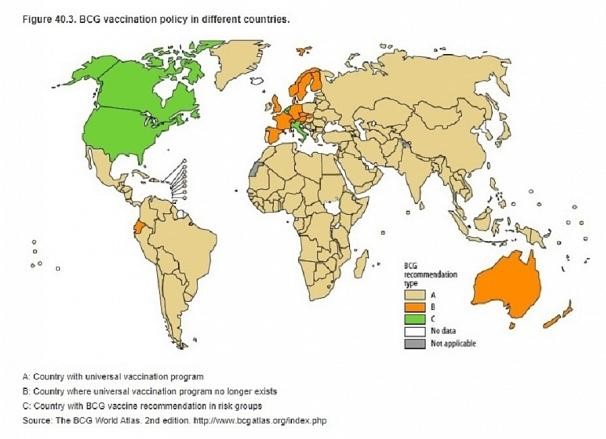We need to be very cautious about attributing variation in COVID intensity to government policy, social practices, culture, etc. We just don’t have a good sense yet about what other factors need to be controlled for. (1)
For example, a lot has been written about the perceived success of East Asian countries like South Korea, Singapore, Taiwan, and (previously) Japan in keeping COVID under control. Other countries often mentioned as success cases are Germany and New Zealand. (2)
The implicit assumption here is that advanced industrialized countries are basically comparable. We don’t hear much about Vietnam or Nigeria, even though the number of reported cases and deaths are very low. (3)
However, we don’t know whether controlling for economic development is enough to make valid cross-country comparisons. It most likely isn’t, but we don’t yet know enough about the virus to be sure. (4)
Just take a couple of plausible but unproven explanations for COVID prevalence: the BCG vaccine and warm weather. (5)
There is some speculation that the BCG vaccine may strengthen the immune system’s response to COVID. There’s some interesting circumstantial evidence, and clinical trials are underway. (6) https://www.sciencemag.org/news/2020/03/can-century-old-tb-vaccine-steel-immune-system-against-new-coronavirus">https://www.sciencemag.org/news/2020...
Similarly, warm weather may reduce transmission of the virus, though probably not enough to make the virus go away during the summer. (7) https://news.harvard.edu/gazette/story/2020/04/covid-19-may-not-go-away-in-warmer-weather-as-do-colds/">https://news.harvard.edu/gazette/s...
If these two explanations turn out to be correct, it would cast serious doubt on current narratives about the countries and governments that have been doing a “good job” on COVID. (8)
The absence of universal BCG vaccination programs is concentrated in wealthy Western countries that are hardest hit by COVID. If BCG reduces COVID transmission or intensity, you can’t directly compare policy responses in places like Italy and South Korea. (9)
BCG could also plausibly account for why Germany appears to be doing better than its peers: East Germany had a universal BCG program. It also has fewer cases than West Germany and other West European countries (10) https://www.euronews.com/2020/04/06/has-the-key-to-a-coronoavirus-vaccine-been-staring-us-in-the-face-for-a-century">https://www.euronews.com/2020/04/0...
What about weather? New Zealand has been lauded as a COVID success story, but it was summer in the southern hemisphere during much of the outbreak. (11) https://www.independent.co.uk/news/world/australasia/jacinda-ardern-new-zealand-coronavirus-world-leaders-mental-health-cases-a9470531.html">https://www.independent.co.uk/news/worl...
If you look at this map of COVID deaths per capita, New Zealand looks great compared to most OECD countries, but if you compare to countries within the same general latitude (Australia, South Africa, Uruguay, etc), the numbers are unremarkable. (12) https://ourworldindata.org/grapher/total-covid-deaths-per-million?year=2020-04-21">https://ourworldindata.org/grapher/t...
Weather could also plausibly account for differences in the intensity of the outbreak within countries, like Lombardy vs. Southern Italy, New York vs. California, etc. (13)
The most remarkable COVID policy success stories may actually be countries that have kept COVID deaths modest despite no BCG and cold weather (e.g. Canada, Norway, Finland) rather than Singapore, Taiwan, etc. (14)
My point here is not to claim that BCG and weather explain everything (or even anything) about COVID. We don’t know whether these factors matter yet; we have to wait for more scientific evidence. (15)
The point is that we should be extremely cautious about jumping to conclusions about government/national performance on COVID without knowing much more about the virus. Many other factors could matter that we haven’t even considered yet (16/end)

 Read on Twitter
Read on Twitter



